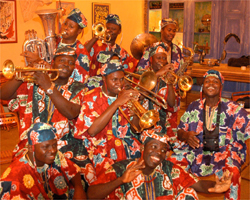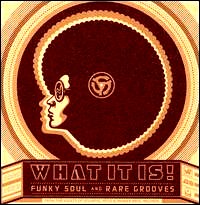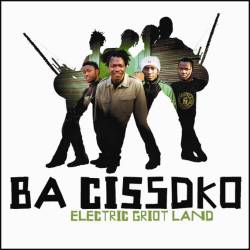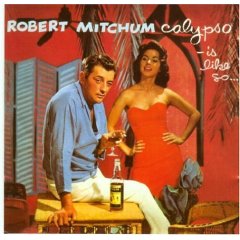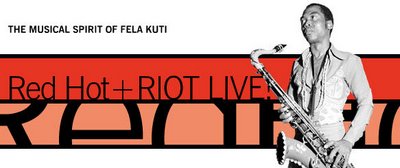 By Robert Fox
By Robert FoxThe Brooklyn Academy of Music (BAM) is hosting an historic live tribute to Fela Kuti on Friday, December 1st and Saturday, December 2nd. Scheduled to commemorate World AIDS Day on Dec 1st, the two shows will re-unite many of the musicians who participated in the groundbreaking Red, Hot and Riot musical benefit project in 2002.
Some of the top musicians in the world will be traveling to Brooklyn for the show, including Tony Allen, Amadou & Mariam, Cheikh Lo, dead prez, Keziah Jones, Les Nubians, Meshell Ndegeocello and Yerba Buena with Special Guest John Medeski. BAM is one of the premier cultural institutions in the United States, and it’s wonderful to see Fela’s music receving this type of high-level feature. (BAM is also close to my heart personally, as I lived a few blocks away in Brooklyn for more than 10 years).
The event is a benefit for the African Services Committee, as described on the BAM website:
With musical direction by Andres Levin, it's not only two nights of great music, but two nights for a vital cause. A portion of proceeds will benefit African Services Committee, an organization which promotes the health and self-sufficiency of New York City's African and Caribbean immigrant communities through the provision of HIV/AIDS care and support services.BAM will also ferature a series of related concerts at BAM Café, starting tonight, Tues, Nov 28th with Wunmi and continuing Wed, Nov 29th with Emperor Adiche, Thurs, Nov 30th with Akoya Afrobeat Ensemble and Sat Dec 2nd with DJ Acidopholus.
On Saturday, December 2nd, BAM will also present four screenings of the new documentary film Fela! Fresh From Africa, which records Fela’s triumphant visit to New York following his release from prison.
And if that's not enough for you, on Friday night, December 1st, you can check out members of four acclaimed US Afrobeat bands joining forces in Brooklyn at the club Northsix for a major Fela-inspired all-night-throw-down jam. This show will also be a benefit for World AIDS Day, and will feature musicians from Chicago Afrobeat Project, Kokolo (NYC), Boston Afrobeat Society and Chopteeth (Washington, DC). The Northsix jam starts at midnight—don’t miss out!
It's a major week for Afrobeat fans everywhere, but especially those of you in the New York City area. Que Viva Fela Kuti!


